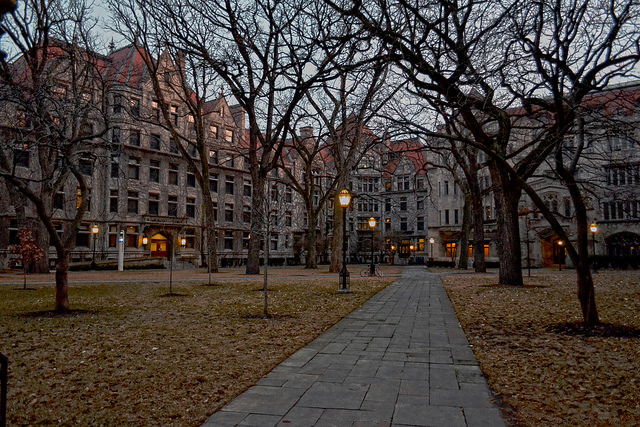State Universities Are Adopting 'Affirmative Consent' Policies To Prevent Sex Assault
By Kate Shepherd in News on Oct 29, 2015 9:16PM
As the problem of campus sexual assaults becomes of growing national importance, many local universities have responded by revamping their sexual misconduct policies and adopting affirmative consent.
Affirmative consent requires explicit consent before the sexual encounter and through every step of the way. It's "yes means yes" instead of the traditional "no means no," and says that silence does not indicate consent.
California and New York have made affirmative consent state law and while it's not a law in Illinois, many colleges and universities in our state have made it a policy, according to a new report from the Tribune.
In October 2014, Mayor Rahm Emanuel, Ald. Ed Burke (14th) and Ald. Latasha Thomas (17th) introduced a "Sexual Assault Victim's Bill of Rights" that would have mandated affirmative consent at all colleges within in the city, according to Red Eye. But the legislation failed to pass the council in May, according to the Office of the City Clerk.
Nearly every institution of higher education in the state has upgraded their sexual assault websites, improved campus outreach and increased staff. Northwestern even hired a men's engagement coordinator who teaches male students about boundaries.
The University of Chicago, who was investigated by the U.S. Department of Education's Office of Civil Rights for its sexual assault policy in 2014, has finally addressed the issue after an outcry from students. They conducted a survey about sexual misconduct on campus and the school's Provost Eric Isaacs called the findings "deeply troubling" in an email sent campus-wide.
It's not been easy for universities to change their sexual assault policies so quickly. When it happens on campus, it usually is a messy, complicated and imperfect process. Northwestern University reps admit it's not easy for them.
"We do teaching really well. We do research really well, but this forces us into a quasi-judicial role that may not be our greatest strength," Alan Cubbage, a spokesman at Northwestern, told the Tribune.
